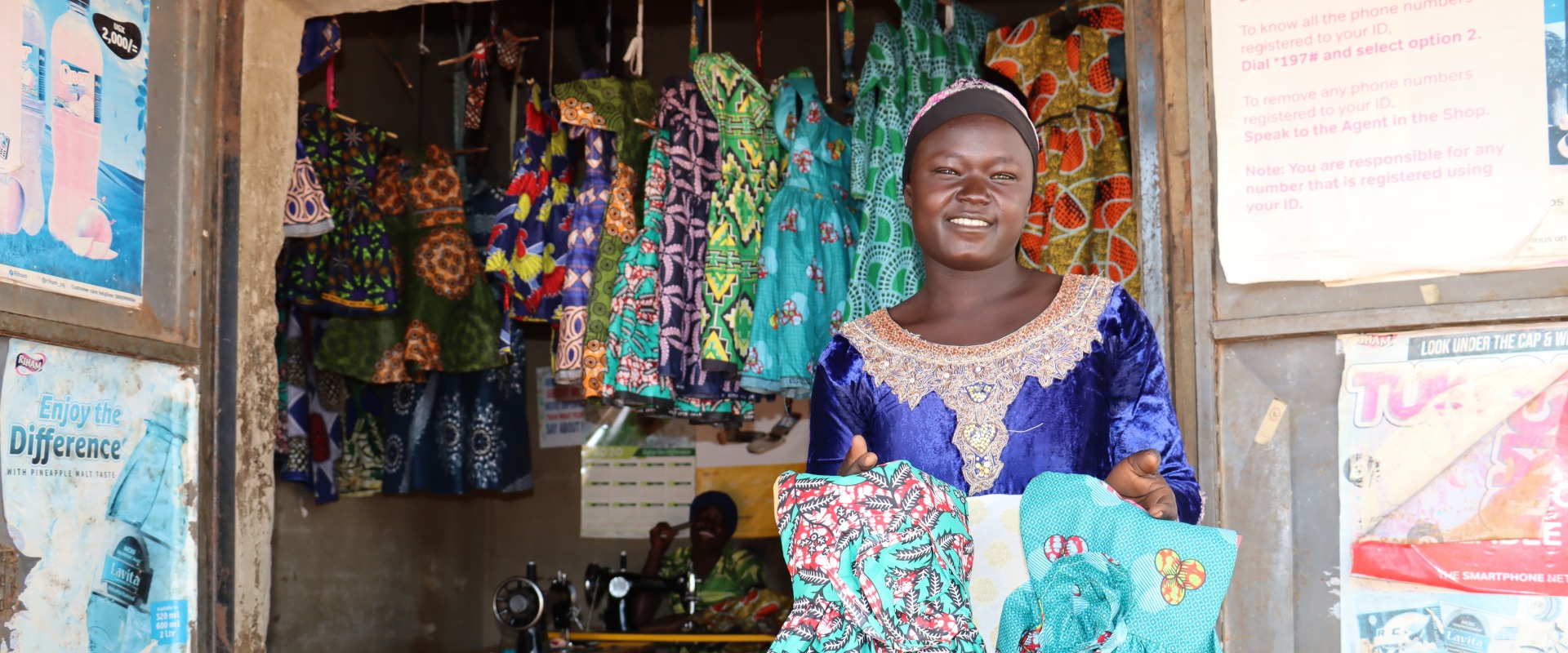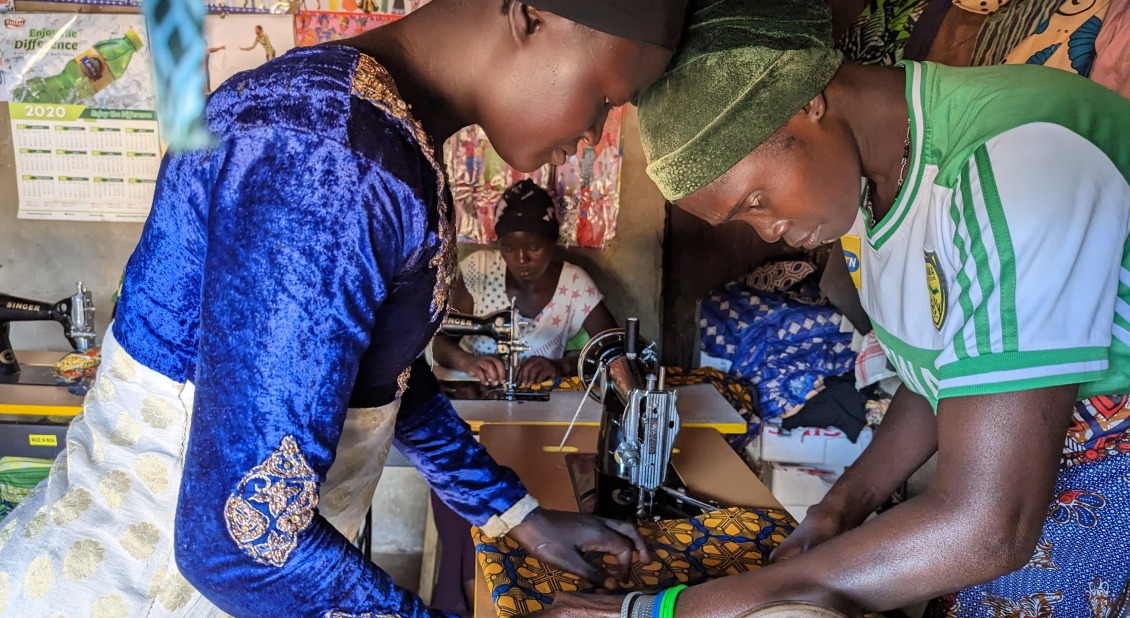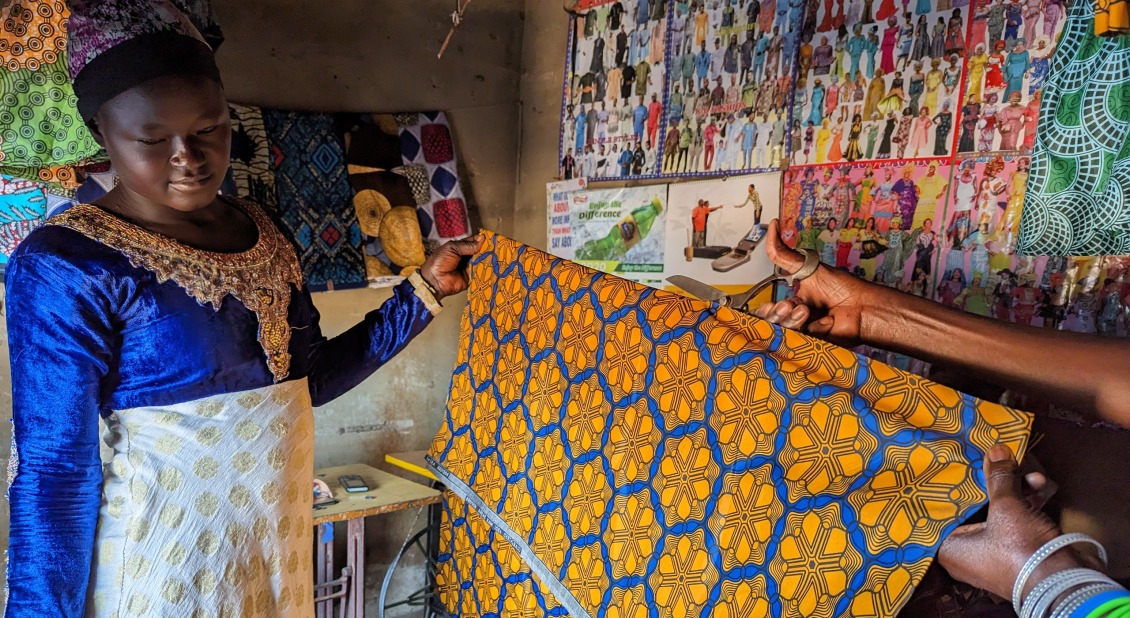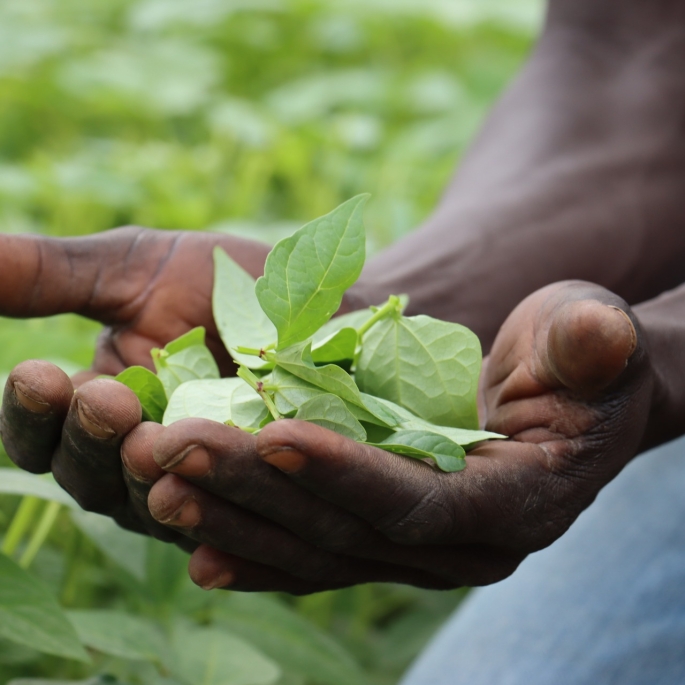
GIVE THIS RAMADAN

In Uganda, a country with one of the world’s largest refugee populations, many people are struggling to find jobs. Just last year alone, the national unemployment rate stood at 9%. This is especially a crisis for young people: the unemployment rate for youths aged 18-30 stood at 13.3%. Despite the government’s best efforts to provide job opportunities, thousands of people around the country are struggling to earn an income.
Without a steady income, many Ugandans cannot feed themselves or their family. This problem is exacerbated by climate shocks, rising food prices, and high rates of inequality throughout the country. Four years ago, Action Against Hunger partnered with local employers to create job and internship opportunities for young people throughout four districts in Uganda. The project transformed the lives of nearly 300 young people, who provided essential support for their families and have since employed, trained, and taught countless others.
“My life changed when I joined the garage,” said Patrick Candia, who was trained by the Internship and Job Placement Program. He now works at a mechanic shop repairing motorcycles: “I am able to sustain myself with this work.”
Patrick now earns enough Ugandan shillings to provide for his family. When his mother fell sick last year, and he was confronted with a medical bill equivalent to nearly $200, he was able to pay it without hesitation.
To improve economic well-being for refugees in Uganda and host community members alike, Action Against Hunger teamed up with local partners to provide young participants with start-up kits, as well as the connections and tools they needed to succeed. More than 30 private sector enterprises hosted interns, who typically undergo vocational training for three months and were often hired full time.
“The internship at Hotel Skypa was for three months,” said Viola Night, who lives in the Bidibidi Refugee Settlement. “I learned very many things, like baking and cooking.”
After her internship ended, Viola called her boss and prepared to say goodbye. But his response surprised her. He told her she should continue working at the hotel.
“He had seen that I am a hard-working girl,” she said. “He just employed me directly for the work. Now, [I have dreams] of opening my own restaurant.”

Robin Okello, a program manager, helped to match interested participants with the internships that best suited them. “There are people within the community who had attained training, but did not have access to employment,” he said. “The objective of the project was to [match them with] private sector jobs….in hopes that once they undertook the internship, they would be retained, and then gain access to formal employment.”
After participating in the Internship and Job Placement Program, Joseph Odong, a South Sudanese refugee, became a barber. “When I make my own money, I know how to manage my expenditure and profits,” he said. “I want to continue saving and growing. I want to acquire more equipment so that young people can train from here. I want them to develop like me.”
The Ugandan Government is eager to boost employment opportunities. Nevertheless, it’s a difficult process. “We are constrained because we do not have the capacity to reach almost everywhere,” said Innocent Asaba, Chief Administrative Office in Yumbe District. “That is why we are very appreciative of [this project], which has come in to join hands with us to ensure that we provide these services to the community.”

The project has transformed the lives of hundreds of young adults, who now have a career path. Many believed that they would never be employed again, especially refugees, who struggled to maintain their livelihoods after the long trek into Uganda. Now, they are even enjoying three meals a day, and they’re confident that they will be able to eat again tomorrow—without depending on food rations.
“Initially I had nothing to do. I didn’t make any money,” said Sam Eyotre, who lives in a refugee settlement in Terego District. Today, Sam works to repair motorcycles with Patrick. “After joining the garage, I earned some money. If it was not for this opportunity, I would have remained at home with no money for education. If I was at home, I would not be able to do this work.”
About the Project
The European Union Emergency Trust Fund (EUTF) Response to Increased Demand in Government Service and Creation of Economic Opportunities in Uganda (RISE) Project, organized by a consortium of nonprofit organizations and spearheaded by Action Against Hunger, launched the Job & Internship Placement program throughout several villages in Uganda. Action Against Hunger’s partners include the Norwegian Refugee Council (NRC), Welthunger Hilfe (WHH), PALM Corps, and local communities in the Arua, Adjumani, and Yumbe districts of West Nile, Northern Uganda. Since 2019, EUTF RISE has improved the lives of nearly 150,000 refugees and members of their host communities.

Click here to learn more about Action Against Hunger’s work to support refugees and communities in Uganda.
Join our community of supporters passionate about ending world hunger.